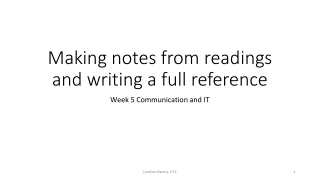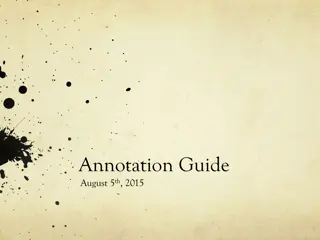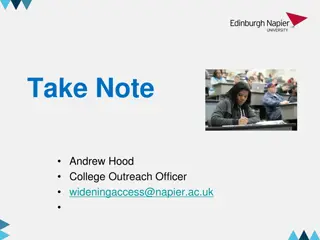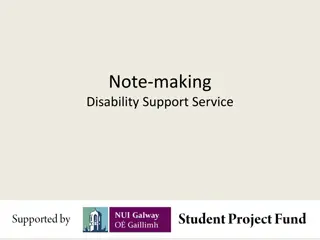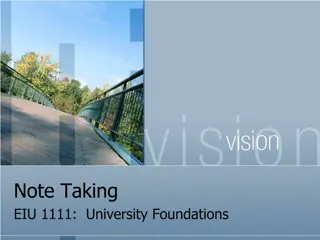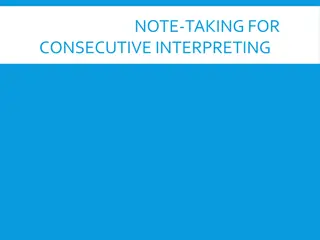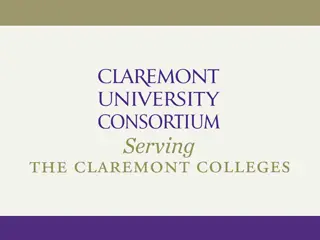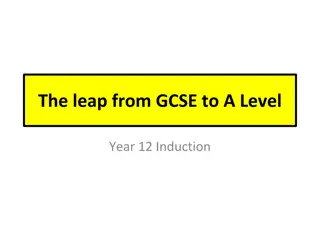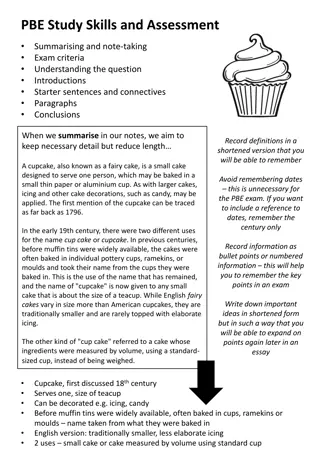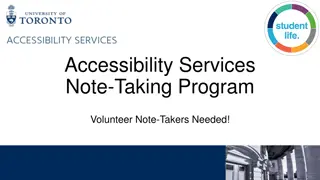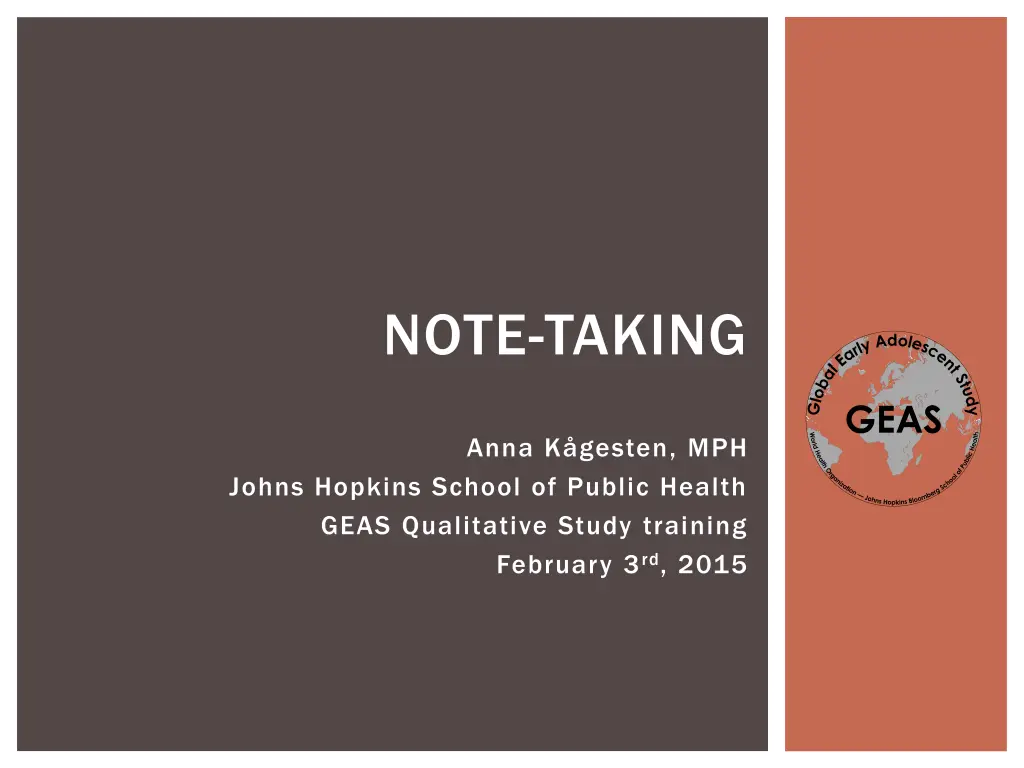
Effective Note-Taking Tips and Strategies for Qualitative Studies
Learn the importance of note-taking in qualitative studies, including tips on effective techniques, what to include in notes, and the process for various types of interviews. Discover how proper note-taking can enhance participant analysis and aid in future research endeavors.
Download Presentation

Please find below an Image/Link to download the presentation.
The content on the website is provided AS IS for your information and personal use only. It may not be sold, licensed, or shared on other websites without obtaining consent from the author. If you encounter any issues during the download, it is possible that the publisher has removed the file from their server.
You are allowed to download the files provided on this website for personal or commercial use, subject to the condition that they are used lawfully. All files are the property of their respective owners.
The content on the website is provided AS IS for your information and personal use only. It may not be sold, licensed, or shared on other websites without obtaining consent from the author.
E N D
Presentation Transcript
NOTE-TAKING Anna K gesten, MPH Johns Hopkins School of Public Health GEAS Qualitative Study training February 3rd, 2015
WHY TAKE NOTES? Help characterize participant s behavior and context Document themes and questions to address in future interviews Trigger memory, help asking questions Aid in transcription http://www.williamcronon.net/researching/interviewimages/932_oral_histories_fig06_lowres.jpg
? ? What does it take to be an effective note taker?
NOTE-TAKING TIPS Be strategic Be strategic: Capture key words and phrases instead of full quotes Shorthand Shorthand rather than computer Use a format you feel comfortable format you feel comfortable with Abbreviations and acronyms Abbreviations and acronyms Expand on notes Expand on notes as soon as possible after interview
WHAT TO INCLUDE IN NOTES, AND WHY? What to include What to include Why Why Group/individual ID code Participant engagement Interruptions, distractions, reluctance to answer, emotions Participant s behaviors Non-verbal communication Key themes and terms Stories/comments outside of interview Records/tracking Back-up if recording unclear Provides context & helps to understand transcripts Carries meaning on its own To guide questions/plan next interview
PROCESS Adolescent group interview (timeline) Adolescent group interview (timeline) 1-2 people take detailed notes of both the construction of timelines, and the discussion Summarize notes on note note- -taking form A taking form A immediately/ASAP afterwards Adolescent individual interview Adolescent individual interview Not necessary to take notes, might disturb flow Summarize thoughts on note afterwards note- -taking form taking form B B immediately/ASAP Parent interview Might want to take brief notes as memory cues Summarize thoughts on note-taking form C immediately/ASAP afterwards
LOGISTICS Fill out forms by hand Type up your notes and send by email (All notes should be given to field coordinator)
! ! If information doesn t appear in the transcript and notes, it doesn t exist for the study.

